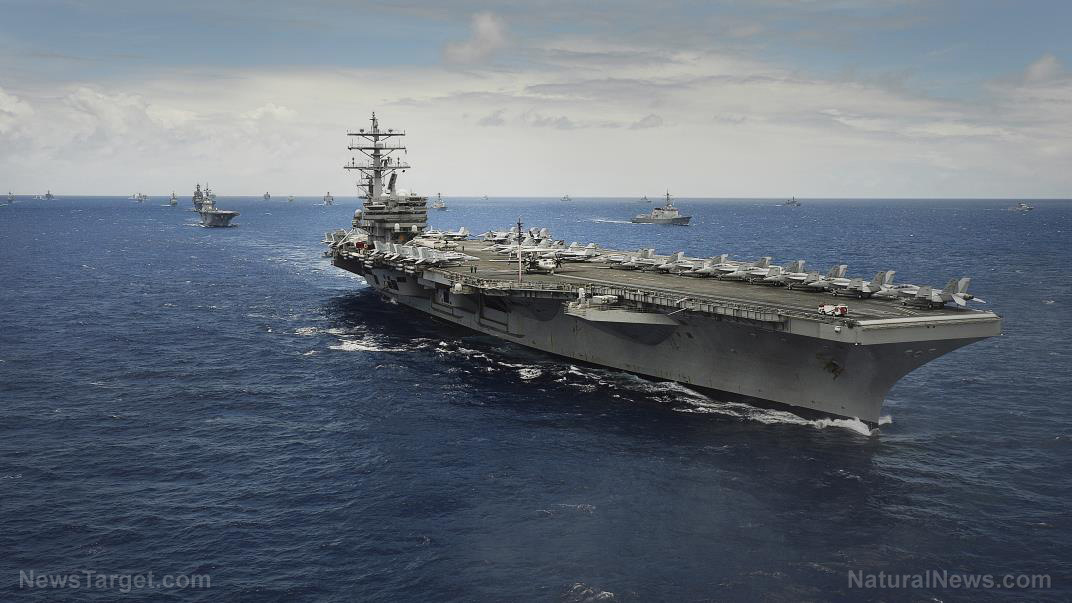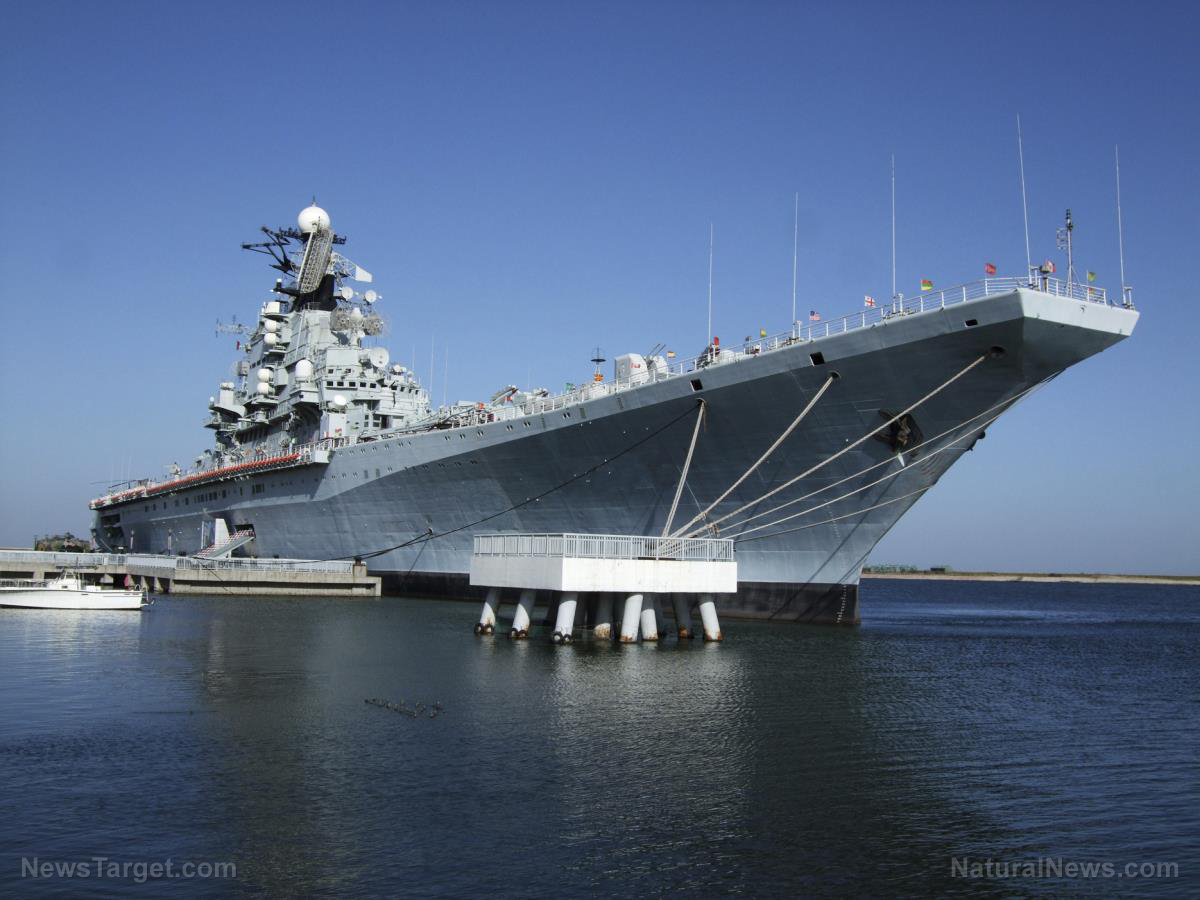Chinese submarines can now track AND SINK U.S. Navy aircraft carriers
11/18/2024 / By Ethan Huff

While not quite up to par in terms of being an equal contender with the United States, communist China is moving right along with advanced military technology that is now capable of both tracking and sinking U.S. Navy aircraft carriers.
In 2015, China’s People’s Liberation Army (PLA) was able to successfully track an American aircraft carrier positioned near the coast of Japan using one of China’s own Kilo-class fast attack submarines. The sub tracked the USS Ronald Reagan for more than 12 hours in what officials described as “more than a brief encounter.”
According to Beijing, the Ronald Reagan was sailing through Chinese waters at the time of the encounter, which was similar to another from back in 2006 when a Chinese Song-class sub surfaced undetected within torpedo range of the USS Kitty Hawk.
Since that time, China has also made great strides in harassing American aircraft with Chinese fighter jets over the South China Sea. China has also even further advanced its submarine fleet capabilities to more easily and effectively track American military ships throughout the region.
“In the past, Chinese submarines were considered to be a generation behind the U.S. in terms of specs and capabilities,” reports National Interest.
“They were quite loud, making them easier for U.S. warships to spot. But China has allocated a lot of resources and funds to modernizing its naval assets over the last decade, and its submarines could be far more capable now.”
(Related: Have you checked out our earlier report about the hypersonic missiles that both China and Russia currently possess that are capable of destroying “with certainty” U.S. aircraft carriers?)
Will China outpace the U.S. militarily?
At the same time, the United States has continued to develop its submarines, which are still said to outpace China’s – but that could eventually change.
“If the threat is from undersea warships, the carrier can rely on Virginia-class submarines that greatly outclass their Chinese counterparts, plus antisubmarine sensors and rotorcraft deployed on both destroyers and the carrier itself,” Forbes reported about the superiority differences between America’s and China’s subs.
“The architecture of the defensive perimeter dictates that if an enemy penetrates one layer of protection, it will then face another, and another. So even if the adversary can find a carrier in the vastness of the Western Pacific, the likelihood its weapons will reach the carrier and do serious damage is not great. The likelihood the carrier could actually be sunk is minimal, given its design features.”
The thing to remember about all this is that these capabilities are more theoretical than they are practical. While Chinese submarines can track a U.S. aircraft carrier for a period of time, it is still an unanswered question as to whether or not China could actually attack one with success.
Theoretically, it should be possible for China to attack a U.S. aircraft carrier based on what is known about the country’s military capabilities. Practically, it remains to be seen if there is ever a shock and awe kind of event to prove whether or not the theory is correct.
If you are interested, the documentary below from NAVY Productions takes viewers aboard a U.S. Navy aircraft carrier to see what life is like on a floating city in the middle of the ocean:
“I went on an aircraft carrier while an elementary-age kid and was amazed by the runway and the floor below deck,” a commenter wrote in response to the above documentary. “Everything was larger than life!”
“There ain’t nothing luxurious about an aircraft carrier except where top brass resides,” suggested another.
More related news coverage can be found at CommunistChina.news.
Sources for this article include:
Submit a correction >>
Tagged Under:
aircraft carriers, big government, chaos, China, dangerous, future tech, insanity, inventions, military, military tech, national security, Navy, panic, submarines, weapons tech, WWIII
This article may contain statements that reflect the opinion of the author
RECENT NEWS & ARTICLES
COPYRIGHT © 2018 MILITARYTECH.NEWS
All content posted on this site is protected under Free Speech. MilitaryTech.news is not responsible for content written by contributing authors. The information on this site is provided for educational and entertainment purposes only. It is not intended as a substitute for professional advice of any kind. MilitaryTech.news assumes no responsibility for the use or misuse of this material. All trademarks, registered trademarks and service marks mentioned on this site are the property of their respective owners.




















